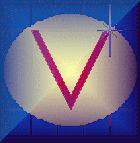
Games
42
RPGS
55
Arcade Games
34
Puzzle Games
18
Platform Games
10
Strategy Games
Sections
QB
News
Site
Archives
Game
Guides
Our
Projects
Entertainment
Awards
Page
QB
Links Page
Interact
Discussion
Board
The
QB Chatroom
Mailing
List
Submissions
Link
to Us
Job
Openings
Email
VPlanet!
Affiliates
The
QB Times
Future
Software
Abyssware
Studios
Clockwerk
Productions
Darkside
Productions
Game
Developer's Refuge
GBGames
QBasic
Master
Creating
NeoBasic
Pete's
QBasic Site
Pickers
Games Website
Programming
Oasis
Programming
ShareHouse
QB:
Cult Magazine
QB
on Acid
QB:
The Magazine (Archives)
QBasic/QuickBasic
News
QuickBasic
RPGs
Secret
Weapon Software
Sneukeule's
QBRPG Page
StattoNet
Disclaimer
The
software reviewed and/or downloadable in this site, along with any related
images presented or concepts related to the software, belongs to its respective
people, companies, and development teams. All downloadable titles in this
site are "freeware", and the source of each software is clearly stated.
The opinions presented regarding such software does not reflect the views
of its creators; the intention of this site is to inform and pay tribute
to the many programmers who have chosen QuickBasic 4.5.
Any additional images and/or news gathered to this site from another source belongs to its respective owners, and is intended to advertise the source and promote its theme.
If
you have any problems concerning the contents of this site, please contact
our staff at
vancevelez@yahoo.com.
The first 100% QuickBasic game Review magazine
Evolution of the Zelda Clone
(6/30/2000) V Planet takes an interesting look at QB's many attempts to synthesize Nintendo's biggest franchise sans plumbers.
With Nintendo at the helm of the Zelda franchise, it is very unlikely that Nintendo will ever release a Zelda 64-style game for the PC. The result of this fact is a sort of void for QB gamers, some of which have made the horrible mistake of selling their NES or N64, thus losing access to one of the greatest video game series of all time.
One compromise criminals have led to is a process called emulation, where NES and N64 cartridges are ripped open so that their information will be transferred to PCs. Then, with the help of a few modifications, people can play classic Zelda games on their PCs for free. This is a tempting proposal, but it's stealing, and emulation is the grounds at which Nintendo and so many other video game companies are losing millions of dollars.
But whereas emulation is illegal, imitation is flattery. One way QB programmers are beneficial for the video game industry is with their seemingly endless stream of Zelda clones. Zelda clones are games based first on the Zelda formula. As the Zelda clone begins to take shape, the QB programmer adds his or her own personal touch to the mix, in the end creating a game that is individual in its own right.
Because QB Zelda clones are intentionally not 100% like the NES and SNES incantations of Zelda, people can enjoy Zelda clones while the experiences in NES and SNES Zeldas stay fresh. The result is a two-way victory. In one hand, Nintendo spends a lot less money cracking down on video game pirates. In the other hand, QB programmers improve their skills and a lot of people will try their games. This symbiotic relationship has resulted in the continued growth and popularity of QB Zelda clones on the Internet. Some of these QB games have won awards, and others have been enjoyed by QB gamers around the world.
So without further ado, here is our documentation of the evolution of the Zelda clone. It's not in chronological order, but it does show the subtle changes in the course of QB Zelda clones. With some "analysis" of these games in your own time, you'll also find that these games are not only addictive, but fun in their own right.
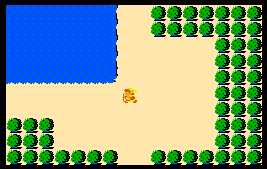
Zelda Clone (Future Software)
http://www.qb45.com
It's probably best to start the evolution of Zelda Clones at its very source, when Future Software wanted to literally re-create the original NES version of The Legend of Zelda using Virtuasoft's popular library, Dash. When this project was first released to the public, this effort fell short since Zelda Clone never had any enemies for Link to battle. It wasn't until Future Software implemented their own QB library many years later that elements like enemies were truely added into this game. In the meantime, Future Software obsessively re-created many of the rooms in the exact orientation as the NES version of the game, and as a result this project (tentatively titled "Zelda Clone") inspired many other QB programmers to make their own Zelda-style games. The evolution of the Zelda clone had begun...
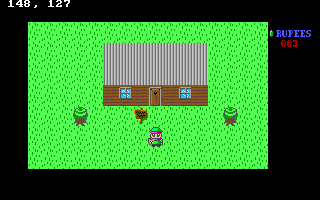
Niket the Destroyer (Endworld Productions)
http://www.fortunecity.com/skyscraper/quadra/691
Before Endworld Productions started packing peanuts out of the competition with their platformer Peanut Patrol, Endworld celebrated some humble beginnings with their take on a Zelda-style game. Niket the Destroyer added some gameplay elements for the standard Zelda clone, by adding some blue crystals for an elf-like hero to collect. There was also the implementation of limited battles, which made Niket the Destroyer one of the first Zelda-type games to feature some involvement in part of the player. Although play time is limited, Niket the Destroyer is important because it set the fundamentals to which future Zelda clones would be judged.
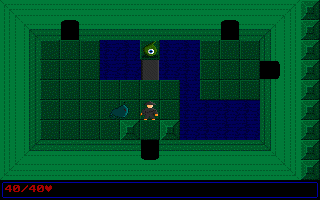
Warrior of the Chichi (Majiko)
http://www.majikode.com
Hoping to knock out two birds with one stone, Majiko introduces both a Zelda-type game with a sort of Oriental touch. Warrior of the Chichi followed the adventures of Gyuhn and his trials to earn enough strength to battle a mighty Chiton army. His training is under the guidance of Lord Zevan, and without the standard princess schtick Warrior of the Chichi is one of the QB games that take a bigger departure from the Zelda formula. But the dungeon and combat system are unmistakably inspired by the Zelda series, as WOTC developed into a mixture of medevil and Chinese themes.
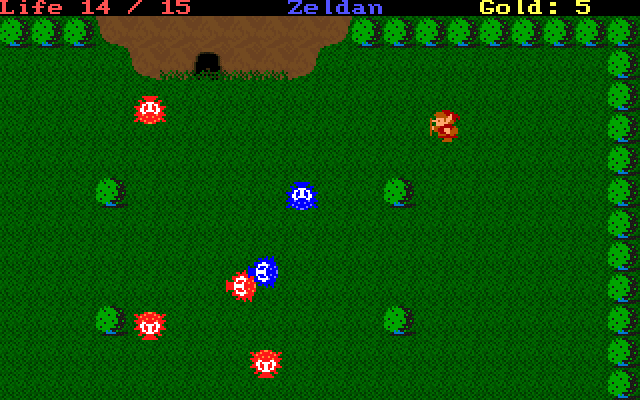
Zeldan (Armageddon Games)
http://come.to/armageddon
Link reappears in his NES Zelda gear for a second time in Armageddon Game's controversial spin on the Zelda clone. I say controversial because Zeldan uses the same programming code as the QB game Ziel (a game shown later in this evolution chart). Since no permission was granted by Jay Cook for Armageddon Games to use the QB code, Zeldan became the first game to ever be removed from V Planet. Nevertheless, Zeldan did provide some evidence (despite the fact that the code and graphics are essentially ripped) that a battle/adventure game in QB can look relatively close to the NES Zelda game.
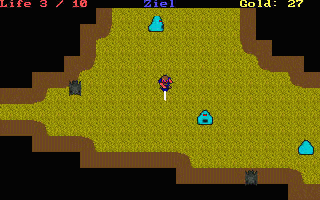
Ziel (Jay Cook and Angelo Mottola)
http://members.tripod.com/~ziel/ziel.htm
Ziel was the first complete attempt at an NES Zelda-type game, with a sword-swinging character, a princess locked in a cave, and a mixture of adventure and discovery. The combat is pixel by pixel, the enemies move in varying patterns, and for the first time a QB programmer was able to make a game that had captured the feel of the NES classic. Jay Cook's game did not go uncelebrated by its peers. Ziel was the recipient of the ABC award for programmers. Two years later, Ziel continued to strive by debuting at the #16 position out of 27 RPGs when V Planet was launched in September 1999.
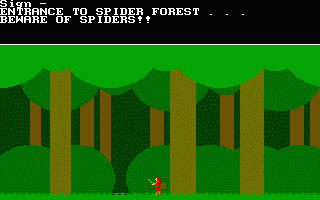
Ring of Everdown (Joel Oakley and Will
Shirley)
http://www.geocities.com/TimesSquare/Labyrinth/6855
Ring of Everdown is a real hybrid as far as QB clones go, since the game feels like a combination of NES classics like Battle of Olympus and Athena, while the story is based on Lord of the Rings, a tale which inspired an SNES game by Interplay. But even with all those inspirations, Ring of Everdown is unmistakably the closest QB has ever been to the NES game Zelda II, which is the only side-by-side RPG/platformer in the Zelda franchise. Ring of Everdown follows the adventures of the hero Boldt, who must travel through dangerous caves and participate in an original, split-second battle system.
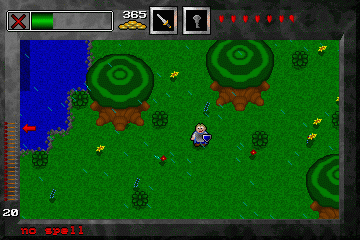
Shadow of Power (Master Creating)
http://www.master-creating.de
Shadow of Power is probably one of the few on-going Zelda-type games, first intended to be the premiere Zelda III clone. Yet, as time passed and Shadow of Power developed into a complete quest, the combination of Zelda and other video game elements put Shadow of Power in a constant battle between individuality and true excellence. This RPG has been constantly fine-tuned in the pursuit of perfection, and as a result Shadow of Power has finally found a home in V Planet's Top 10 QBRPG list. But this not enough for Shadow of Power either, which has already won the QB community's respect through the acquisition of the title Best RPG in the 2000 QB Gaming Gold Awards. Perhaps Shadow of Power will continue to evolve on it's own until it finally takes the #1 position in V Planet's list.
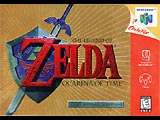
Zelda 64: The Ocarina of Time QB (?)
If the evolution of QB Zelda-style games were to continue, eventually a QB Zelda 64 clone will have to be released. The game, which will probably be out about four or five years from now, will have to include a reasonable number of Zelda 3D elements while taking a few diversions in story and in design. Zelda 64 QB would only have to be about 15% the world size of the N64 version of Zelda 64, and it would have to be powered by a library like the QB community has never seen.
Now before you dismiss such a feat as impossible, consider that about three or four years ago QB programmers weren't supposed to make games like an NES Zelda 1 or 2, or even like an SNES Zelda 3. And with the specifications of computers constantly improving and the tools and libraries available to QB becoming more powerful, there may very well be a release of a Zelda 64 clone in QB someday. And by then the focus of the die-hard QB programmers will be to make a clone of Zelda Dolphin.
- Vance Velez